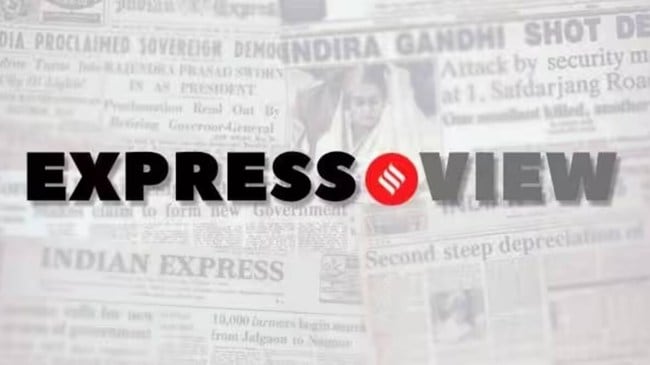Opinion SC’s interim ruling on waqf law checks sweeping powers of executive on Muslim charitable bodies
The government should read the message in this extraordinary intervention: It must pay scrupulous attention to due processes, especially on complex matters that pertain to religious practices of minorities.
 The SC ‘s intervention is also crucial because it usually reserves interim relief in exceptional cases.
The SC ‘s intervention is also crucial because it usually reserves interim relief in exceptional cases. The Supreme Court’s interim order on Monday, pausing some key aspects of the contentious amendments to the Waqf Act, is significant. A bench led by Chief Justice of India BR Gavai and Justice Augustine Masih has put on hold provisions that gave district collectors sweeping powers over waqf properties and capped the number of non-Muslims who can be appointed to the waqf boards. The SC also paused the provision mandating that only those practising Islam for at least five years can create waqfs. The stay will continue till state governments frame rules on how to determine who is a practising Muslim. The interim order will be in effect till the SC hears a detailed constitutional challenge. As the SC underlined, it is meant to “protect the interests of all parties and balance equities during the pendency of the matters.”
The waqf law was introduced in 2024 and was referred to a Joint Parliamentary Committee (JPC) that included members of the Opposition. However, in the JPC, none of the issues raised by the Opposition were taken on board. And, in Parliament, it ultimately came down to the fact that the government had the hard numbers. The interim order addresses some of the key issues raised by the Opposition. On the district collector’s role, for instance. Under the 2025 law, a waqf property would lose its status if a district collector identified it as government land. This power, earlier with the Waqf Tribunal, essentially makes the government a judge in its own case – the district collector’s decision would hold till a court adjudicates on the disputed land. The SC underlined that this provision is arbitrary and not in tune with the principle of separation of powers. “The question of determination of the title of a property will have to, in our considered opinion, be resolved by a judicial or quasi-judicial authority,” and a “revenue officer cannot be entrusted with the work of determination of the title of a property, keeping in view the principle of separation of powers,” it said. On the issue of representation of non-Muslims in waqf boards, the Court noted that the functions of these bodies are largely secular and advisory and do not directly interfere with religious activities. It capped the number of non-Muslim members to four out of 22 in the Central Waqf Board and three out of 11 in state councils. It is not as if the Court agreed with all the arguments of those who had petitioned against the law. It deemed a key provision that does away with the concept of waqf-by-user — land used for Muslim religious or charitable purposes for a long period of time is deemed as waqf even if it was not registered as such — as prima facie constitutional.
The SC ‘s intervention is also crucial because it usually reserves interim relief in exceptional cases. Laws enacted by Parliament carry a presumption of constitutionality. As the Court said, interim relief is only given when “provisions are ex facie in violation of fundamental rights or constitutional principles, or are manifestly arbitrary”. The government should read the message in this extraordinary order: It must pay scrupulous attention to due processes, especially on complex matters that pertain to religious practices of minorities.




